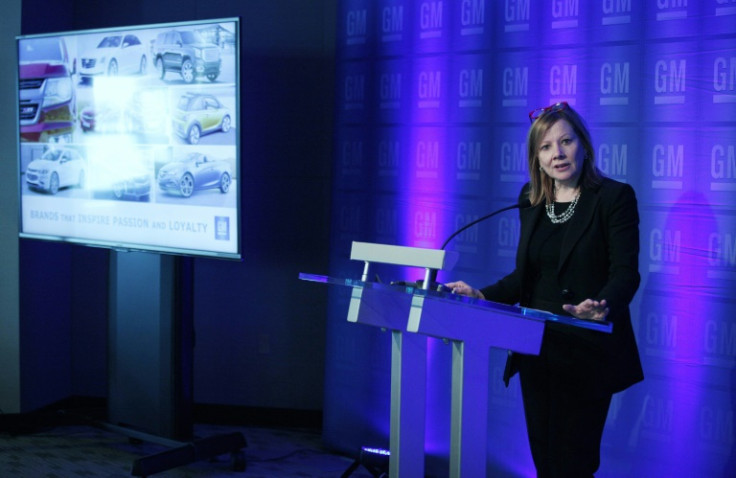
General Motors announced hefty new initiatives Wednesday to return billions of dollars to shareholders, lifting its stock price as it estimated the recent labor strike hit at $1.1 billion.
The automaker lost about 95,000 vehicles in 2023 due to the United Auto Workers labor stoppage, executives said, adding that the overall cost of the new multi-year contract was modestly higher than executives had expected.
GM announced a $10 billion "accelerated" share repurchase program and plans to boost its dividend by 33 percent.
"GM will deliver very strong profits in 2023," said Chief Executive Mary Barra.
"We are finalizing a 2024 budget that will fully offset the incremental costs of our new labor agreements and the long-term plan we are executing includes reducing the capital intensity of the business, developing products even more efficiently, and further reducing our fixed and variable costs."
GM also reinstated and adjusted its full-year profit outlook now that its cost picture is resolved following a new contract with the UAW.
The company withdrew its financial forecast in October in the middle of a weeks-long UAW strike that also affected fellow Detroit "Big Three" automakers Ford and Stellantis.
Workers ratified contracts with a 25 percent wage increase for hourly employees earlier this month.
Executives said the manufacturing of key GM pickups at plants that experienced strikes are back at pre-strike levels.
GM estimated the total cost increase from new labor contracts at $1.5 billion in 2024 compared with the prior contracts.
GM had been girding for a difficult labor negotiation after tough contract talks at other industrial companies such as John Deere and UPS, Barra told analysts on a conference call.
"The net result has been higher than expected but not significantly," said Barra, adding that the contracts will add about $500 per vehicle in 2024 and $575 over the life of the UAW contract.
GM said next year it expects to spend hundreds of millions of dollars less on its Cruise autonomous auto program, where operations were suspended recently due to safety concerns following a series of accidents.
California in October halted testing of the program after a self-driving car operated by Cruise ran over a woman who had first been knocked in front of it by a hit-and-run driver in San Francisco.
Barra said GM would modify Cruise's operations following independent safety and incident reviews.
The company will be "very deliberate about how we go forward" as it works to build trust with regulators, Barra said.
Shares of GM jumped nearly 10 percent in pre-market trading.







